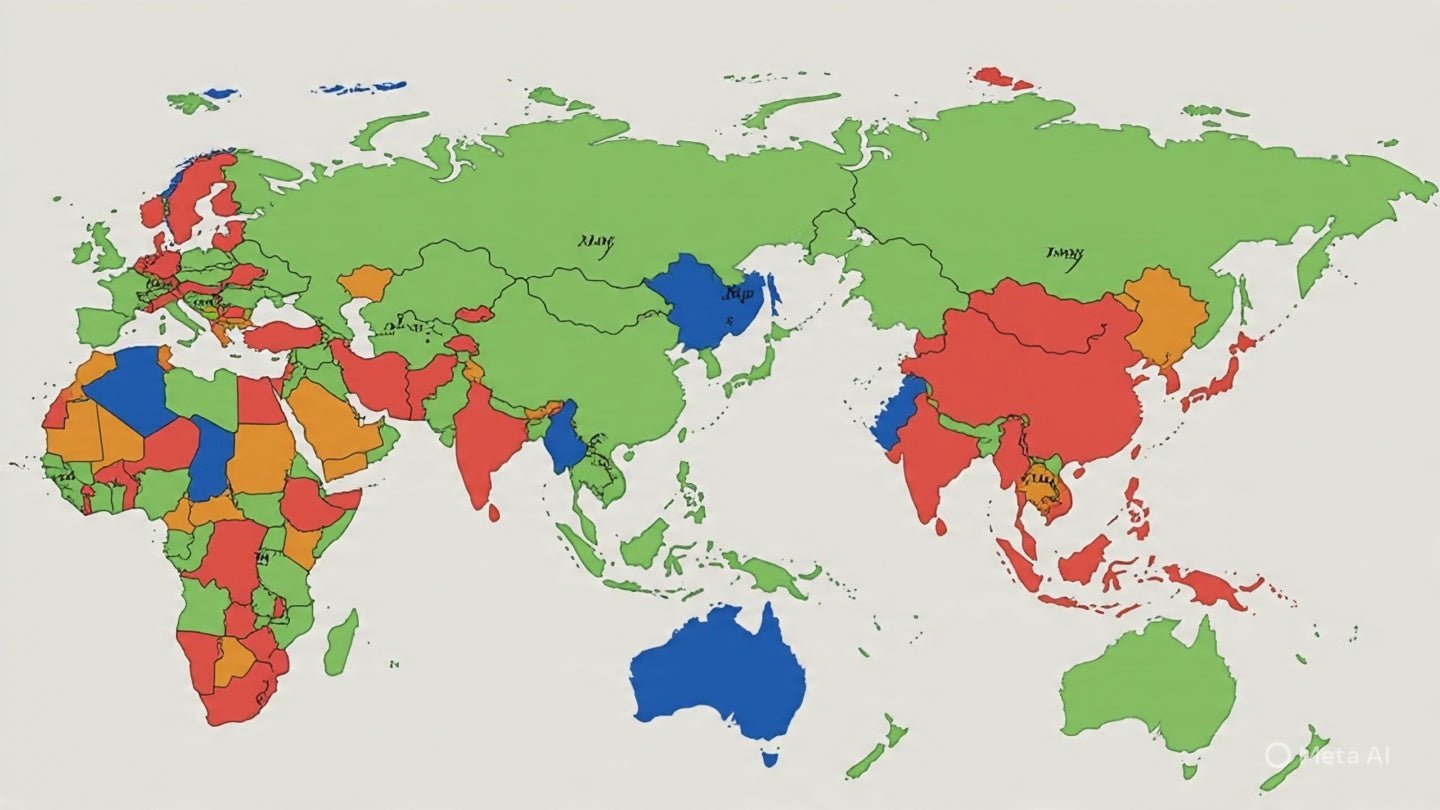
China shares land borders with 14 countries — but has had border disputes with 17.
Yes, even countries it doesn’t touch physically. This isn't just a coincidence. It’s part of a clear long-term strategy.
From the Himalayas to the South China Sea, China has used treaties, tactical incursions, and grey zone warfare to expand its land and maritime reach — while denying aggression outright.
Here’s a quick explainer (like you're watching a map-video breakdown) of who, where, and why China is constantly in some kind of #borderdispute.
1. China Shares Borders With 14 Countries. But Has Disputes With More.
Let’s start with facts.
Countries that China shares land borders with (14 in total):
-
India
-
Pakistan
-
Nepal
-
Bhutan
-
Afghanistan
-
Myanmar
-
Laos
-
Vietnam
-
North Korea
-
Mongolia
-
Russia
-
Kazakhstan
-
Kyrgyzstan
-
Tajikistan
Now, here’s the kicker: China has had territorial or border disputes with all of them at some point.
And beyond that? It’s also in disputes with Philippines, Taiwan, Cambodia, and Thailand — countries it doesn’t even touch physically.
2. Key Land Disputes You Should Know About
Here’s a breakdown of the major land disputes — simplified:
🇮🇳 India – 3,500 km of Disputed Borders
-
Ongoing #LAC (Line of Actual Control) tensions in Ladakh and Arunachal Pradesh
-
Galwan Valley clash in 2020 proved how volatile this can get
🇧🇹 Bhutan – Salami Slicing in Doklam
-
China's roads in contested zones led to India-Bhutan-China standoff
🇳🇵 Nepal – Border Marking Ambiguities
-
Kalapani-Limpiyadhura dispute emerged in 2020–21
🇷🇺 Russia – Historical Dispute Over Rivers
-
Settled in 2004, but tensions once existed over Amur River and surrounding islands
🇲🇳 Mongolia – Water Resource Tensions
-
China tried to divert cross-border rivers during the 1960s–70s
🇻🇳 Vietnam – War in 1979, Still Not Over
-
China briefly invaded northern Vietnam; maritime issues remain ongoing
🇲🇲 Myanmar – Border Skirmishes
-
Military clashes and cross-border rebel movements cause instability
🇦🇫 Afghanistan – Wakhan Corridor
-
Only 76–90 km of border but strategically sensitiv

-
3. Maritime Disputes: South China Sea Power Play
China doesn't just fight on land.
In the South China Sea, it claims almost the entire region — overlapping with:
-
Philippines
-
Vietnam
-
Malaysia
-
Brunei
-
Indonesia
China has:
-
Built artificial islands
-
Set up military bases
-
Blocked fishing routes and oil exploration projects of other nations
Philippines won an international court case in 2016 — but China ignored it.
So yes, even without a shared land border, China disputes maritime boundaries based on “historical claims”.
4. Taiwan: “Not a Dispute” — Full Occupation Attempt
China considers Taiwan a breakaway province.
But Taiwan sees itself as an independent nation with its own:-
Passport
-
Parliament
-
Currency
China frequently:
-
Sends military aircraft into Taiwanese airspace
-
Blocks Taiwan from joining global bodies (like WHO)
-
Tries to influence Taiwanese politics
This is arguably the most dangerous flashpoint in Asia today.

-
-
5. China’s Strategy: Dispute, Delay, Then Control
The pattern is often the same:
-
Claim historic or cultural right to a region
-
Build small infrastructure — roads, airstrips, outposts
-
Push “dialogue” or treaties after acquiring enough ground
-
Stall negotiations while facts on the ground change
-
Declare stability and “peaceful resolution” (after grabbing land)
This is why even after treaties (with Russia, Nepal, Myanmar), disputes either resurface later or result in silent control.
6. Why This Affects the Whole World
Whether it’s your country or not, China’s land and sea expansions affect:
-
Global trade routes (esp. via the South China Sea)
-
Mineral and energy security
-
Diplomatic balance in Asia
-
Foreign investment decisions
-
Cybersecurity and infrastructure development in disputed areas
That’s why #geopolitics, #bordersecurity, and #territorialintegrity matter — even to common citizens.
🧾 Shunyatax Global says that financial clarity starts with informed decisions — even geopolitical ones.
We help individuals and businesses make international investments, handle cross-border tax issues, and protect global assets through structured planning.
🚀 Start your journey with us today:
👉 📞 Book a Consultation : https://shop.shunyatax.in/collections/services/products/1-1-confidential-advisory
👉 🌐 Visit Our Website : https://shop.shunyatax.in/collections/services
👉 📧 Email Us : urgent@shunyatax.in
🔹 META DESCRIPTION:
China has border disputes with 17 countries — even some it doesn’t touch. Find out why and how this shapes global geopolitics. #ChinaDisputes #territory
🔹 SEO TAGS:
#ChinaDisputes #ShunyataxExplains #SouthChinaSea #TaiwanIssue #IndiaChinaBorder #borderconflicts #geopolitics #asiatension #territorialdisputes #SHUNYATAXGLOBAL -
✍️ Blog Summary
China shares land borders with 14 countries — but has had border disputes with 17.Yes, even countries it doesn’t touch physically. This isn't just a coincidence. It’s part of a clear long-term strategy.From the Himalayas to the South China Sea, China has used treaties, tactical...


Share:
How Anguilla Turned the .AI Domain Boom into a $30 Million Goldmine
What is MD (Misdeclaration) in Imports — And How Importers in India Use It to Save Crores in Duties